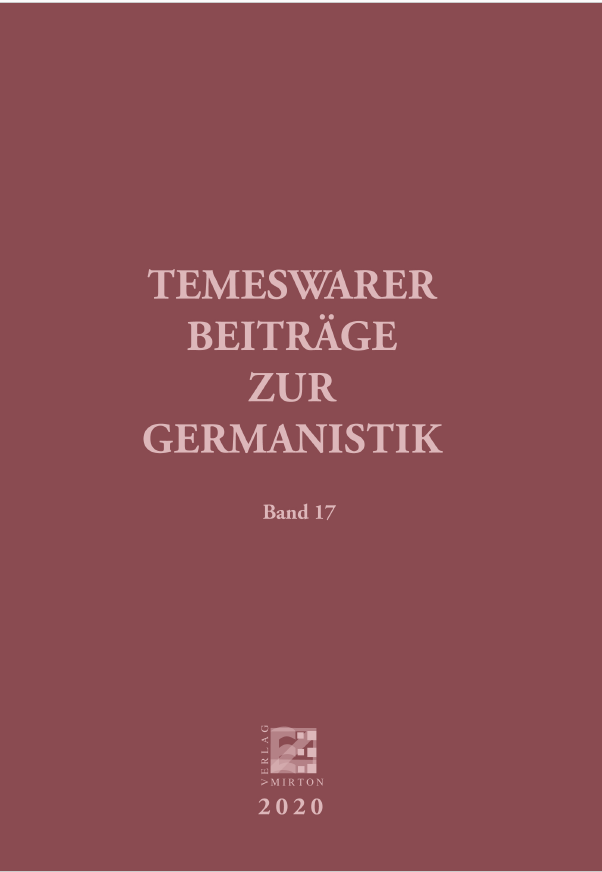Jugend ohne Gott in einer Welt, wie sie ist, auf der Suche nach einer Welt, wie sie sein sollte. Ödön v. Horváths Roman von 1937 und die „Verfilmung“ von 2017
Youth without God in a world as it is, searching for a world as it should be. Ödön v. Horváth's 1937 novel and the 2017 film adaptation
Author(s): Margit RiedelSubject(s): Language and Literature Studies, Novel, German Literature, Film / Cinema / Cinematography
Published by: Editura Mirton
Keywords: Ödön von Horvath; Youth without God; Dystopia; anticipation of the Fridays for Future-Movement; narrative of the upcoming totalitarian structures in society; manipulation;
Summary/Abstract: „Youth without God“, Ödön von Horváth’s novel (1937) is even in its latest film adaptation (2017) an important narrative of the upcoming totalitarian structures in our society. JoG is not a historical film on the emergence of National Socialism in the 30s of the past century, but it is rather a dystopia. The producers Aselmann/ Aldenhoven and the director Gsponer have set the story of the murder of a schoolgirl in the “not too far future”. The film showcases social injustice, especially in the educational system, and dangerous tendencies like surveillance and manipulation through media, and thus becomes a reflection of our own society today. The film shows us the consequences of not being active on time against totalitarian structures as well as of not fighting for a better future. As against Horvath’s novel, there is an alternative concept of youth in the film (especially in the finishing shot), which gives us hope and which is a kind of visionary anticipation of the Fridays for Future-Movement.
Journal: Temeswarer Beiträge zur Germanistik
- Issue Year: 2020
- Issue No: 17
- Page Range: 155-175
- Page Count: 21
- Language: German

